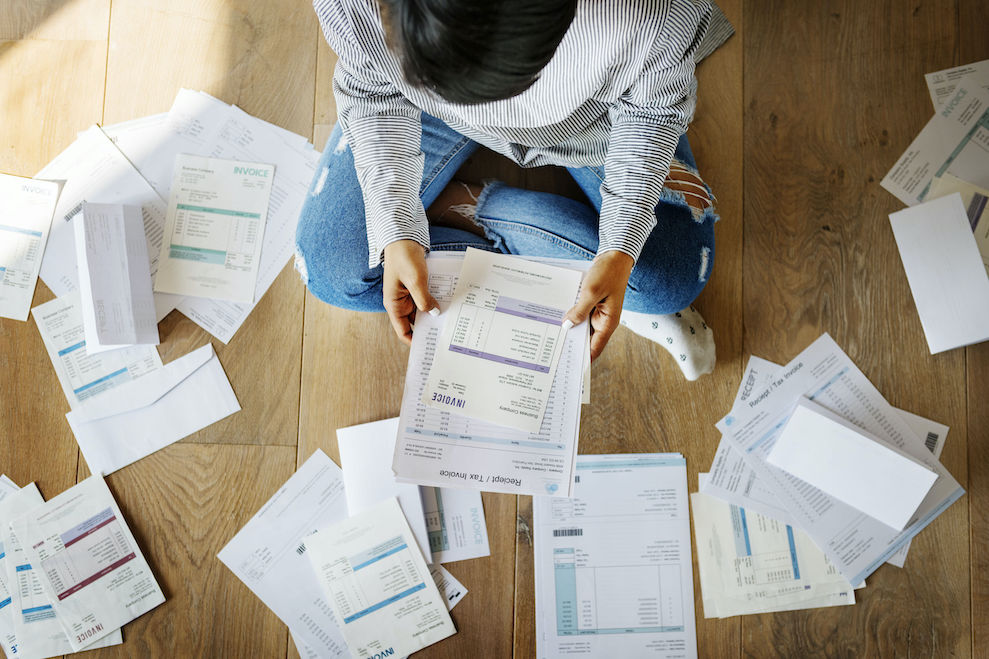Moving out of your parents’ house
October 1, 2023Are you thinking about moving out of your parents’ house and living that sweet independent life as a young adult? The prospects of having your own space may be a dream come true, but as chiou as that may be, you might want to know that moving out of your parents’ house does not just involve packing up and heading off to your new pad.
Let’s look at why in this article. Here’s a checklist of the 4 important considerations to make when moving out on your own, that can vary your plan greatly.
Type of housing

You might be browsing apps to see what’s up for rent on the market that fits your needs – and your pockets. A rule of thumb, your rental should not be more than 30% of your monthly income.
The cost of rent varies a lot depending on the type of housing you go for. Depending on your needs, your options can include:
Renting a room
You can rent a room across various property types such as landed property, penthouses, condominiums, and HDB flats. Renting a room may offer you cheaper rent prices. On the flip side, you may find that privacy is lacking in your space as you have to share the common areas and the home with other tenants. The other downside is that landlords may have restrictions about hosting. You may also have to check if the other tenants are comfortable with you bringing guests over.
For those who are more particular about sharing toilet amenities – or maybe you are worried you might end up with housemates who may not be too rigid about toilet cleanliness – you can choose to pay a premium for ensuite options like the master bedroom. This means that you get to have an entire bathroom to yourself. Couples and singles who don’t want to shell out too much money for a living space of their own may prefer this option as well.
Renting an entire place
Renting an entire place is definitely an option if you prefer complete privacy or like to host. Do take note though – this option is more costly if you are staying by yourself. If you can band a group of like-minded friends to live with, however, you can split the rent and bring down your cost. Not to mention, #foreveralone no more!
Serviced residences
Another rental option is serviced residences. These types of housing come fully or partially furnished, which means that most rental units are ready to move in. All you need is your bag of clothes. They also often include housekeeping options and comfortable amenities. This option is suitable for those with little time to maintain their space, although living a bit more atas will definitely increase your expenditure.
Hidden costs of living alone

While the cost of rent is obvious, many do not realise the unexpected costs that can creep up when you are living independently. Yikes!
Groceries
Living out of the family home means you do not enjoy the luxury of having home-cooked meals or takeaway food from your parents. Whether you choose to cook or order food delivery, you’ll probably have to set aside a higher budget than you would have previously for food.
There’s also a chance that you’ll have to fork out some money to buy appliances for home cooking as not all flats come furnished with your preferred cooking equipment.
Utilities and WIFI
Rental costs may not always include your portion of the utilities and WIFI bill. Some landlords require you to split or pay electricity and water bills so you need to take that into account as well. And if you are used to having the air-conditioning on, be ready to cough out more “cold”, hard cash. Its maintenance costs may sometimes be borne by the tenant, so do check your tenant contract before going ahead.
Condo-related expenses
Condominium units and some private residences may require special access passes. It is not uncommon for some landlords to request payment from you should you require additional access passes.
Additional things to budget for

You would also need to set aside a budget for additional one-off costs that come up when you choose to rent. These include:
Upfront deposit
Typically, landlords require upfront deposits that can range from 1 month or even up till 6 months depending on your lease term and contract. When looking through your deposit, check that it includes deductions in the event of any accidental damage or early termination of contract too – which brings us to the next point.
Repairs and accidental damage
As a tenant, you are liable for any accidental damage you cause to the furniture provided or rental space. However, there may be instances where damage and signs of wear and tear already existed before you moved in.
Most of these costs will be borne by the tenant if it should occur during your period of residency. So, before moving in, you should discuss this with your landlord and carefully inspect the house for any signs of damage. Get a friend or a family member to come with you because two pairs of eyes are better than one – and no, we don’t mean your prescription glasses.
When renting older units, in particular, there is also a chance that a need for repairs may arise. To ensure that the clause on repairs is reasonable and account for it in your budget.
Furniture and household items
If you have picked an unfurnished or partially furnished flat, you will need to budget for furniture and appliances that would be required. This applies to pretty much anything – your study desk, your bed and mattress, a microwave oven and maybe a beanbag? Of course, if you have some old but good ones lying around in your parents’ house and are not being used, you could always save money by bringing them to your new abode.
Agent fees
If you are thinking about engaging in a property agent to help you source for your future (rented) home, you will also need to factor in the additional amount to pay your agent. Usually, this fee depends on your rental rate and lease period. Do be careful of real estate scams, though! Reach out to those from legitimate agencies instead.
Pre-handover cleaning
While we only think of the costs of moving in, you do have to budget for a pre-handover cleaning if you’re moving out of a rental space. Usually, this is only the case for tenants who leased the entire property for themselves. But if you have been keeping the place clean throughout your stay, then you can probably do away with this.
Stamp duty
Did you know that a percentage of the property’s stamp duty is also payable by the tenant?
Depending on the lease term, the payable amount can be up to 0.4% of the total rental amount for lease terms 4 years or less. For lease terms above 4 years, the stamp duty payable by the tenant is 0.4% of 4% of the average annual contractual or annualised market rent for the period of the lease.
Bonus: Budgeting Tips

Choosing to rent shouldn’t be done carelessly as it involves many decisions and considerations. While renting is tagged with many hidden costs that seem daunting, it is possible to rent a space of your own with proper planning and budgeting.
An easy way is to build up an emergency fund. Once you’ve settled on the type of house, lease term and rental rate you’re comfortable with, you can work backwards to shore up enough cash as a buffer for emergencies. This ensures that you can continue to pay for rent should any unexpected changes in your life crop up.
Another easy way to manage this is to plan your monthly household budget. The use of an expense tracking app to monitor your cash flow can help you keep tabs on your expenditure across groceries, rent and other household-related needs. This ensures that you don’t spend beyond what you’re supposed to and that you’ll always have enough cash to fund any necessities.
Conclusion
While moving out of your parents’ house is adulting, don’t forget that adulting also means paying bills and being independent. Be sure to do your homework and budget your finances properly before embarking on this new phase in life. Happy house hunting!
This article is brought to you by Standard Chartered Bank (Singapore) Limited. All information provided is for informational purposes only.





